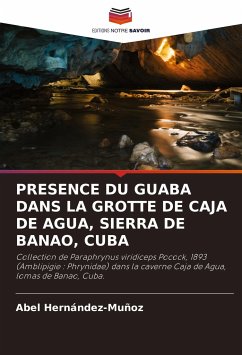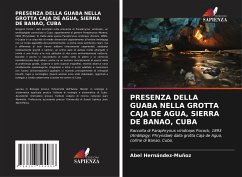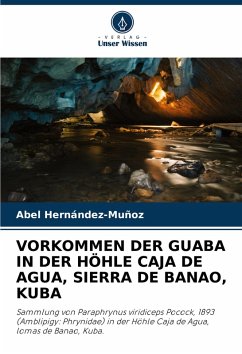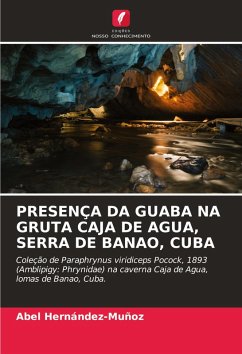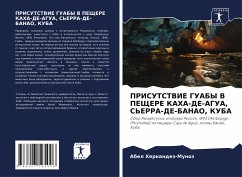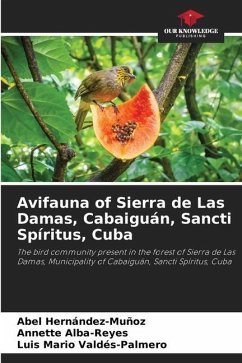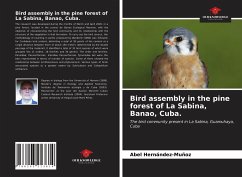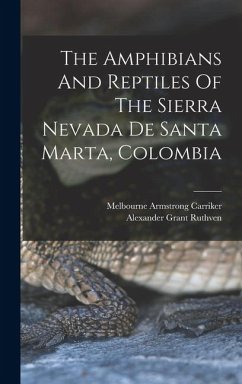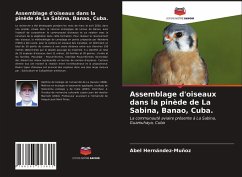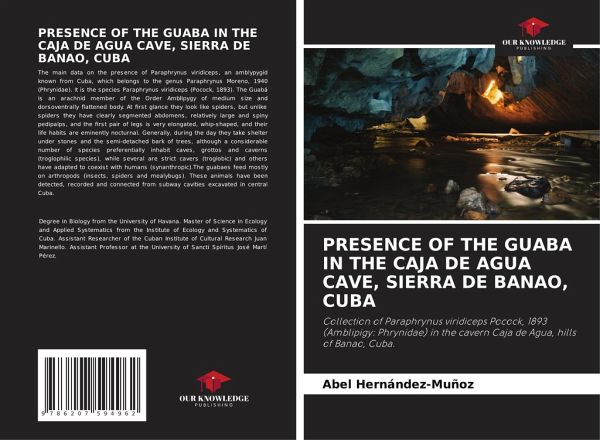
PRESENCE OF THE GUABA IN THE CAJA DE AGUA CAVE, SIERRA DE BANAO, CUBA
Collection of Paraphrynus viridiceps Pocock, 1893 (Amblipigy: Phrynidae) in the cavern Caja de Agua, hills of Banao, Cuba.
Versandkostenfrei!
Versandfertig in 6-10 Tagen
29,99 €
inkl. MwSt.

PAYBACK Punkte
15 °P sammeln!
The main data on the presence of Paraphrynus viridiceps, an amblypygid known from Cuba, which belongs to the genus Paraphrynus Moreno, 1940 (Phrynidae). It is the species Paraphrynus viridiceps (Pocock, 1893). The Guabá is an arachnid member of the Order Amblipygy of medium size and dorsoventrally flattened body. At first glance they look like spiders, but unlike spiders they have clearly segmented abdomens, relatively large and spiny pedipalps, and the first pair of legs is very elongated, whip-shaped, and their life habits are eminently nocturnal. Generally, during the day they take shelter...
The main data on the presence of Paraphrynus viridiceps, an amblypygid known from Cuba, which belongs to the genus Paraphrynus Moreno, 1940 (Phrynidae). It is the species Paraphrynus viridiceps (Pocock, 1893). The Guabá is an arachnid member of the Order Amblipygy of medium size and dorsoventrally flattened body. At first glance they look like spiders, but unlike spiders they have clearly segmented abdomens, relatively large and spiny pedipalps, and the first pair of legs is very elongated, whip-shaped, and their life habits are eminently nocturnal. Generally, during the day they take shelter under stones and the semi-detached bark of trees, although a considerable number of species preferentially inhabit caves, grottos and caverns (troglophilic species), while several are strict cavers (troglobic) and others have adapted to coexist with humans (synanthropic).The guabaes feed mostly on arthropods (insects, spiders and mealybugs). These animals have been detected, recorded and connected from subway cavities excavated in central Cuba.





